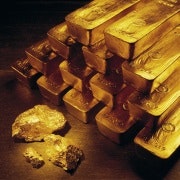Britain is a pawn in Pfizer's AstraZeneca tax game
Pfizer, the American drug company that makes the potency pill Viagra, wants to boost its own performance by taking over AstraZeneca, a jointly owned British and Swedish company with a good record of discovering and patenting new medicinal drugs. Pfizer has already offered £63 billion ($114.623b) and, if the deal does go through, it will be the biggest ever foreign takeover of a British company.
AstraZeneca is a fast-growing company in a manufacturing sector that has been diminishing steadily in Britain over the past 25 years. Zeneca sprang from the loins of ICI and its union with the Swedes has been fruitful. Pfizer’s profits are falling (down 9 per cent in the last quarter), and AstraZeneca’s catalogue of new drugs is a powerful lure. Besides, there would be a huge tax advantage to Pfizer in relocating to Britain. rather than paying tax on its overseas profits in the US.
These takeovers of British companies by a competitor from abroad normally proceed fairly smoothly. In this case, Prime Minister David Cameron extracted some flimsy-looking promises from Pfizer’s chairman and chief executive about the future of research and employment in Britain, and then washed his hands of the negotiations.
Ed Miliband, the Labour leader, sneered that the Prime Minister was acting as a “cheerleader” for an American drug company, and this takeover bid has become a new bone for the two parties to pick over. Miliband argued that AstraZeneca is a vital part of Britain’s strategic science base. If the object is to secure British research and jobs, he said, it would better that it retain its independence rather than to be subsumed in a rival twice its size. The argument is a classic dispute between the merits of globalisation versus the national interest.
They order these matters differently across the Channel. The French treasure their national industrial icons, and tend fiercely to resist foreign takeovers. In the past, France has prevented an Italian takeover of a dairy company called Danone, which bottles water (Evian for example), and manufactures yogurt-based products for the world market. Danone was defined as an untouchable national asset. (This decision contravened European Union rules, but the French tend to turn a blind eye to EU rules that do not suit them.)
The Anglo-Saxons and the French are like cat people and dog people. While the French nurse their industrial base as a matter of pride, the British have long since ceased to think of prestige in terms of ownership of industry. You could argue that, having spent 300 years or so exploiting the birthright of the various countries they colonised, the British have spent the past 25 years selling off their own. Just about the only thing a Briton is not allowed to sell freely in world markets is precious and unique works of art.
Whole British industries have been sold off: privatised industries such as energy and water are largely foreign owned; so are the investment banks in the City of London. But the most extraordinary example is the motor industry. This year the UK will produce about 1.5 million vehicles and, of those, the number that will be made in British-owned production lines is exactly 1 per cent -- 15,000. British cars are produce by Japanese, German, Indian and Indian manufacturers. (Rolls Royce and Bentley are German owned; Jaguar Land Rover belongs to Tata Motors.)
Patriots might affect horror at the destruction of a great British industry, but industrial life in the 21st century is more complex than that. British-owned motor manufacturers disappeared in the last quarter of the 20th century because the management had become simply incapable of disciplining its workers. In this battlefield in the class war, there were no winners. But the foreign companies brought no social baggage, and the unions were willing to work with them. The British motor industry is now the most successful in Europe; 80 per cent of the cars produced are for export. Production and exports are nearly back to 2007, pre-GFC levels. Without the comprehensive takeover of ailing British marques this would not have happened.
So, would the Pfizer takeover of AstraZeneca be a good thing? The cost of the research required to find new, best-selling drugs protected by patent is soaring, and is more easily met by global companies. But listen to the caveats: Pfizer, which shut down its research laboratories in Britain only recently (including the one that discovered Viagra), is willing to guarantee a permanent presence in the region for only five years.
Moreover, the principal motive for the takeover is the tax advantages it produces. Pfizer has announced that it will become the holding company incorporated in Britain. The advantage of this is that it will pay no British tax on dividends it receives from overseas operations, which amount to tens of billions of dollars -- all of which would be heavily taxed if the money were to be repatriated to the US.
Pfizer is using Britain as a convenient and efficient tax haven. The Prime Minister and the Chancellor of the Exchequer see this as a vindication of their tax policies. Miliband declares the public interest is not being served; select committees of the House of Commons are to investigate. The French would be appalled. In this case, it is hard not to sympathise with the French.
















